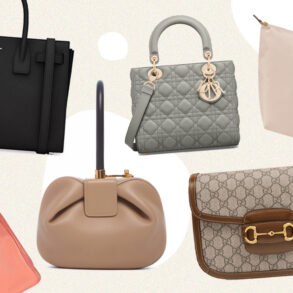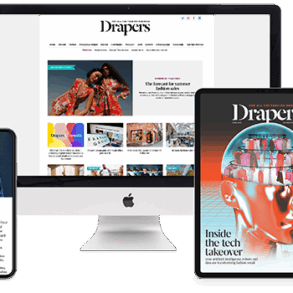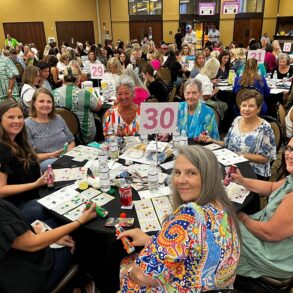
Starting off with traditional offshore investments can be a great stepping stone to expand your earning potential and perhaps fund those passion purchases
Exclusivity, legacy, heritage and wealth — these are just some of the hallmarks that make up the world of luxury investments.
From designer luxury handbags, premium whisky, watches, art and even sneakers, some may argue the luxury investment market has become an art in and of itself.
What is clear however, is that it is a market on the rise in South Africa — and is one that can pay off in the long run.
Nevertheless this is not a new concept, as it was accurately predicted as a burgeoning niche investment “class” in a report by multinational company, Deloitte, back in 2015.
What could not have been predicted however, would be the market’s resilience, irrespective of a global pandemic, the current global economic headwinds, geopolitical strife, rising inflation and rising costs of living.
This distinctly niche market made up mostly of high-net-worth (HNW) and ultra-high-net-worth (UHNW) individuals were not only able to ride the wave of economic unpredictability, but are now gliding into more wealth and expanded streams of income through their luxury investments.
The country’s biggest pre-owned luxury reseller, Luxity, recently noted that while South Africa was a relatively small market in the context of the global industry, it reportedly recorded a 75% increase in luxury sales over the past financial year.
Aspiration and passion
Gone are the days when one reached a certain level of wealth, and automatically invested in traditional assets such as stocks and bonds. Today’s generation of HNW individuals also include diverse new contributors to wealth, either through their rising social media stardom or booming entrepreneurial endeavours.
The “allure of the aspirational” however, is still as alive as ever.
Locally, according to reported data from the Treasury department, personal tax income grew to R72 billion in 2021, with a verified 60 000 new South African millionaires created.
The already rich, got even richer. Continental African billionaires – five of whom are from SA – increased their wealth by a net $1.6 billion in 2020 alone, with a combined net worth of $22.2 billion. SA’s dollar billionaires mean that the country is home to over 25% of the continent’s wealthiest people.
The new generation of wealthy individuals places value in its passion collections, not following the same 50-year-old norms in the investment market; the crucial caveat today being the concept of the “pursuit of passion”.
That is where these markets and brands — be they fine wines or whiskeys, fine or contemporary art, Swiss watches, or high-end handbags — combine the idea of taking this world of luxury that appreciates in value into your home and have the added benefit of an increased asset portfolio.
Amid these luxurious pursuits however, one cannot downplay the importance of having traditional (bonds and stocks) investments, and alternative investments (such as cryptocurrencies), however, the new generation investors are investing in items that bring them joy. One high-end and sought-after handbag brand reportedly outperformed gold, amassing an annual return of 263% over the past five years. Meanwhile, another vintage highly collectible bag brand has been described as the new “modern must-have” for both experienced and new collectors, fetching average auction prices nearing $29 000.
While art has for many years been a store of wealth for higher society, the types of art that these collectors now consume is now far more contemporary. Yes, there is no substitute for a precious Van Gogh or Monet, but even controversial pieces from UK street artist Banksy are now selling for millions of pounds and some have experienced growth rates of around 25% over the past five years.
At the right time and price, that joy inherent in this market is proving to multiply, while also making financial sense.
Financial ease and financial sense
It is critical to note that there exists a key differentiator in terms of accessing this “new” world of luxury investment. It quintessentially lies in your ability to already be financially liquid enough to not have a major purchase such as a designer bag influence any part of your financial portfolio. When that R50 000 for a designer bag or an expertly crafted watch fetching R1 500 000 is not going to make a dent in your day-to-day life, then you know you can afford to invest in that market.
Once you become involved in this market, it opens one up to a community of like-minded investors and purveyors of finer assets.
Because of the nature of the quality and exclusivity of these commodities, their maintenance, condition, legitimacy, and handling are of the utmost importance in order to validate and maintain their value. When one buys these sorts of items, there is always a “how-to” guide on how to store them and maintain their value, and a database of legitimate collectors you are put in touch with.
In South Africa, there is still a relatively small segment of the population partaking in the luxury investments space, but it is a trend that seems to show little sign of abating.
Luxury investing is not about saving to make a quick profit, nor investing to liquidate quickly and sell shares. It takes time, building relationships, and ultimately, having an experiential relationship with the item itself. This market of investors can also withstand economic downturns, are happy to partake in an ultra-niche space, and they are willing to take the risk because they can afford it.
While it may seem somewhat different and complex, off-shore investments in luxury goods, for instance, are becoming increasingly accessible. What is key is the ability to access these investments in hard currencies where the markets are already well established and offer diversity not provided in the local stock market. Starting off with traditional offshore investments in global currencies can be a great stepping stone to expand your earning potential, and perhaps fund those passion purchases. Global offerings such as the Liberty Offshore Investment Plan can be the stepping stone to start harnessing the returns required to push your investments into the luxurious realm of “investing for your passion”.
Bringing humanity back into investing
The allure of luxury investment transcends more than just the rands and cents — you get involved with it because it resonates with something deeper within yourself. It is your hard-earned money, and gives you an opportunity to have a say on where and how you want to spend it.
It is about bringing humanity back into investing for this high-net-worth segment. It is about taking stock of the right financial decisions you’ve likely made over the years, with a trusted Financial Adviser, and making an educated investment about bringing joy and passion back to the game.
Sarmishta Haribhai is Liberty Lead: Investment Proposition
About Liberty:
Liberty is a wholly owned subsidiary of The Standard Bank Group and is currently one of the largest providers of long-term insurance solutions to South Africa’s retail affluent market. With a strong and relevant brand of more than 60 years, Liberty offers an extensive, market-leading range of products and services to help clients build and protect their wealth and lifestyle. This is enabled by Liberty’s 3 000-strong tied distribution force that expertly equips customers with knowledge to make financial decisions that add value throughout their various life stages. Liberty’s incorporation into Standard Bank provides synergies and advantages not only in South Africa but across the African continent, positioning Liberty as an integral part of a universal financial services organisation focused on delivering exceptional customer experiences and superior value. Liberty’s wholly owned asset manager STANLIB is one of the biggest retail unit trust managers (including money market) in South Africa, with award-winning capabilities in property and fixed income, who together with their market-leading offshore partners are able to provide unique investment opportunities for clients.
Disclaimer:
This article does not constitute tax, legal, financial, regulatory, accounting, technical or other advice. The material has been created for information purposes only and does not contain any personal recommendations. While every care has been taken in preparing this material, no member of Liberty gives any representation, warranty or undertaking and accepts no responsibility or liability as to the accuracy, or completeness, of the information presented. Please consult your financial adviser should you require advice of a financial nature and/or intermediary services.
This post was originally published on this site be sure to check out more of their content.








